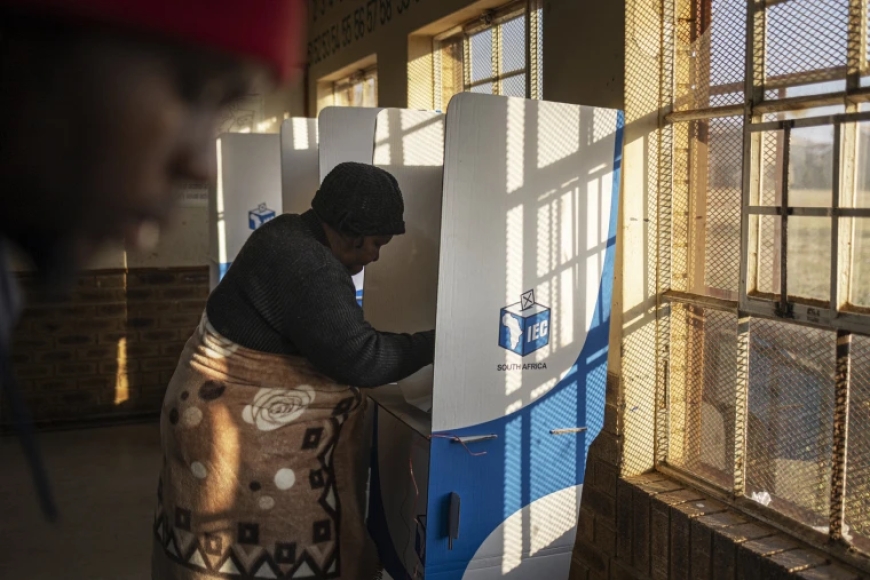South Africa's ANC Faces Historic Challenge as Voters Head to Polls
South Africans are voting today in what is widely seen as the most significant election in 30 years, as the ruling African National Congress (ANC), led by President Cyril Ramaphosa, confronts an unprecedented challenge. For the first time since Nelson Mandela’s party ascended to power in 1994, the ANC risks falling below 50% of the vote, potentially marking a transformative moment for South Africa’s democracy.

South Africans are voting today in what is widely seen as the most significant election in 30 years, as the ruling African National Congress (ANC), led by President Cyril Ramaphosa, confronts an unprecedented challenge. For the first time since Nelson Mandela’s party ascended to power in 1994, the ANC risks falling below 50% of the vote, potentially marking a transformative moment for South Africa’s democracy.
A Three-Decade Dominance
Since the end of apartheid, the ANC has symbolized liberation for millions, consistently securing election victories. However, the party's stronghold is now being tested by widespread discontent. Recent polls suggest the ANC could drop below the crucial 50% threshold, which would compel it to form a coalition with smaller parties, many of which hold the ANC accountable for the country’s persistent issues.
Rising Frustrations
The ANC’s struggle is rooted in escalating frustrations over economic and social challenges. South Africa's unemployment rate stands at a staggering 32%, the highest globally, with young people bearing the brunt. Persistent income inequality, inadequate economic growth, and an ongoing energy crisis have exacerbated public dissatisfaction. Additionally, the ANC’s inability to address rampant violent crime and corruption has eroded public trust.
Opposition on the Rise
This election sees a record 51 opposition parties vying to dethrone the ANC. The Democratic Alliance (DA), the second-largest party in the 2019 election, campaigns on an anti-corruption and economic reform platform. However, it grapples with perceptions of being a predominantly white party. The Economic Freedom Fighters (EFF), polling around 11%, appeals to younger voters, especially Black university students, criticizing the ANC for insufficiently ambitious reforms. Another notable contender is uMkhonto weSizwe (MK), a breakaway party formed by former President Jacob Zuma, who remains influential despite legal constraints preventing his candidacy.
Coalition Government and Future Implications
Should the ANC fail to secure a majority, it will need to negotiate with smaller parties to form a coalition government. This power-sharing arrangement could complicate efforts to tackle South Africa's pressing issues, as previous local-level coalition attempts have been fraught with difficulties. However, it could also signify a shift towards more dynamic political competition, as voters recognize viable alternatives to the ANC.
Generational Divide
The election highlights a stark generational divide. Older voters, many nostalgic for the Mandela era and the liberation from apartheid, tend to remain loyal to the ANC. In contrast, younger voters, facing high unemployment and disillusionment with the ANC’s performance, are more open to supporting opposition parties. Government statistics indicate that about 42% of registered voters are under 40, underscoring the potential for a significant shift in political allegiances.
Conclusion
As South Africans cast their ballots, the ANC faces its most formidable test in decades. The outcome could reshape the nation’s political landscape, heralding an era of increased political plurality and competition. This election not only challenges the ANC’s long-standing dominance but also serves as a crucial indicator of South Africa's democratic maturity.













































